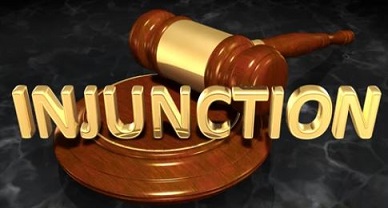Can Novex still collect royalty from you
Novex’s right to collect information is subject to interpretation
- In a ruling dated December 8, 2021, the Madras High Court declared that Novex Communications Private Limited (Novex) is barred from its business of granting licenses for sound recordings.
- While the Bombay High Court on 24th January 2024 clarified that Licenses Can Be Issued by Organizations Not Registered as Copyright Societies.[1]
Novex Communication Pvt Ltd
Novex is a company that licenses sound recordings for on-ground public performances to venues, hotels and other events. It has obtained the following rights:
● PUBLIC PERFORMANCE RIGHTS:
is engaged in the business of licensing public performance rights in sound recordings.
- CABLE COPYRIGHTS:
has the capability to extend the copyright service to any business that needs it.
- ANTI-PIRACY:
Novex’s anti-piracy team is extremely serious and proactive when it comes to protecting.[2]
Is it necessary for the entities to be a Copyright Society to have a right to grant licenses?
The Bombay High Court in a recent landmark ruling in Novex Communications Pvt Ltd. v. Trade Wings Hotels Limited (Commercial Ip Suit No. 264 of 2022), set a significant legal precedent regarding the rights of entities such as Phonographic Performance Ltd (PPL) and Novex Communications to grant licenses for musical works they own, even without being officially registered as copyright societies under Section 33(1) of the Copyright Act, 1957.
Background
Copyright laws and regulations in India cover issues like copyright subsistence, ownership, exploitation and owner’s rights enforcement. By managing artist’s rights, granting licenses and preventing infringement, copyright societies play a critical role in safeguarding the intellectual property that artists create.
In India, distinct copyright societies have been established for various categories of works including sound recordings, writers, publishers, cinematography and musical compositions such as SCRIPT, PPL, IPRS and IRRO. Copyright societies can collect fees, pay them to the owners, grant licenses and they are not allowed to levy a fee that exceeds fifteen percent of the total amount received.[3]
The 2012 Copyright(Amendment) Act guaranteed authors membership in copyright societies governing bodies and provided them more significance.[4]

Copyright society
A body known as the Copyright Society protects the rights of the creators of works over which copyright is granted. Creative authors can feel secure knowing that their works will be managed commercially thanks to the Copyright Society. Because it is difficult for authors and copyright owners to keep track of the use of their copyrighted work, a group of authors and other owners of such works collectively form copyright societies in order to manage and protect the authors or owners against copyright infringement.
- It grants license of copyright works to reproduction, performance, or communication.
- It locates the copyright infringement and initiates the legal process.
(Sections 33 to 36A of the Copyright Act, 1956)
Copyright societies primary responsibilities are to collect fees, distribute those fees to the owners of the corresponding intellectual property and to grant licenses. It is noteworthy that copyright societies are not permitted to impose fees exceeding fifteen percent of the entire money received.
According to Section 33(1) of the Copyright Act, “… that the business of issuing or granting license in respect of literary, dramatic, musical and artistic works incorporated in a cinematograph films or sound recordings shall be carried out only through a copyright society duly registered under this Act”, unless being a copyright society, no one is allowed to conduct business in connection with the issuing or granting of licenses regarding any work in which copyright exists or in respect of any rights under the act. However regardless of a copyright society, the copyright owner himself will always be able to license his work regarding his responsibilities as a member of the copyright society.
Novex Communications Pvt Ltd as a Non-copyright Society
According to the Copyright (Amendment) Act, of 2012 only Copyright Societies were eligible to receive royalties under Section 34(1)(a).
In the case of Novex Communications Pvt. Ltd v. DXC Technology Pvt. Ltd C.S. No. of 407 of 2020 and Novex Communications Pvt. Ltd v. Cognizant Technologies Solutions India Pvt. Ltd C.S. No. 413 of 2020 the Madras High Court ruled that Novex cannot legally engage as a business of issuing licenses for sound recordings. Novex asserted that it had the authority to give licenses and claimed ownership of the sound recording rights. The question revolved was whether Novex was prohibited from engaging in such activities by Section 33(1) of the Copyright Act 1957 since it was not a recognized copyright society.
After analyzing the legislative intent, the Court concluded that although individual copyright holders are entitled to certain protections, engaging a licensing requires copyright society registration. The Court ruled that Novex is not permitted to grant sound recording permits since it is a business entity licensed under Section 33(1).
But in some instances, well-known producers like Tips, Eros and T-Series assigned rights to PPL and Novex which aren’t copyright societies, serving as exclusive licensees for on-ground performance rights. Although PPL was initially registered as a copyright society in 1941, it lost its status and is currently re-registering, but Novex has never been a registered copyright society.
The question of whether PPL and Novex – two non-copyright society societies, may exercise these rights was addressed by the court. Aside from the obligations outlined in Sections 33 and 34, the Bombay High Court in the case Novex Communications Pvt Ltd. v. Trade Wings Hotels Limited (2024) upheld the assignee’s and licensee’s rights under Sections 18 and 30. It is ruled that these entities could use their rights even if they weren’t registered as copyright societies.
- The court made it clear that assignee’s and licensee’s rights differ from copyright societies, permitting owners to grant copyright interests through Section 30 licensing.
- The court emphasized the significance of protecting owner’s rights under Section 30, stressing that Section 33(1) does not prohibit owners from issuing licenses individually.
- The court ruled that an interpretation of Section 33(1) that restricts owner’s licensing rights would excessively restrict ownership rights.
- The court upheld Novex and PPL’s right to collect royalties under Sections 18 and 30, rejecting arguments such as failure to register as copyright societies.
Thus, The Bombay High Court’s ruling clarifies that entities like Novex have the right to receive royalties for musical works they own, even if they are not registered as copyright societies.
Author:- Aathi Kesavan, in case of any queries please contact/write back to us at support@ipandlegalfilings.com or IP & Legal Filing.
[1] https://www.livelaw.in/pdf_upload/novex-order-1-518377.pdf
[2] https://www.novex.in/company-profile/
[3] Enforcement of Copyright Laws through Copyright Societies (March 28, 2024), https://company360.in/blog/enforcement-of-copyright-laws-through-copyright-societies/
[4] Copyright Societies (March 28, 2024), https://lawbhoomi.com/copyright-societies/


